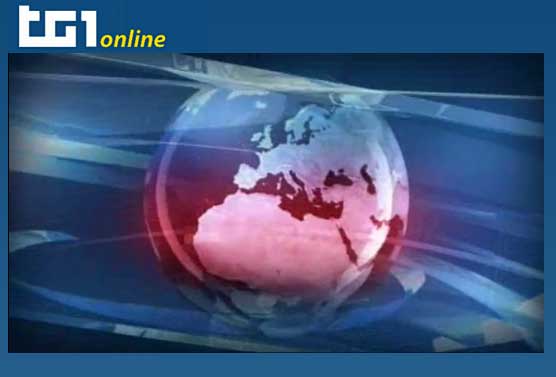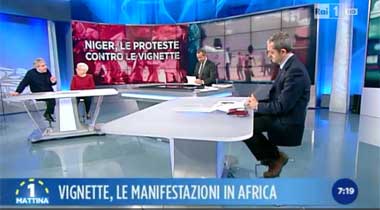
20150119MariaVoceTG1TG1, 8:00 edition, January 2015 (around 8:10)
With regard to the recent massacres in Paris, Nigeria and Pakistan, the Focolare’s president recently issued a statement and appeared in an interview on the
Una Mattina show to give some thoughts on the topic of terrorism; she also gave an interview with TG1 at 8:00.
“Dialogue between religions is the truly winning response against violence,” she had said in responding to a question by Letizia Cioffarelli. “Not only the dialogue with Islam, but the dialogue with anybody we meet, whatever their religious convictions, or ideology might be. We believe that we should spread a culture of encounter, of respect for others as our brothers and sisters, because they are our brothers and sisters, since we are all children of God as human beings. If such a culture were spread it would be possible to effectively counteract terrorism; otherwise, it will be a weed that has been allowed to grow out of control, because of a culture of indifference, confrontation and mutual distrust.”
The cartoon has posed the question of freedom of expression. What is the correct way it should be defended? “There is no such thing as a freedom that allows you to offend others; that is never true freedom. Freedom is that which allows you to love the other by giving yourself completely. Therefore, if we see the possibility of a greater love for others in respecting limits, we leave others free and we are free as well.”

Uno Mattina, January 19 – beginning at 21:38 and from 28:33
She reiterated an idea that was already expressed in her interview with
Uno Mattina, when the interviewer referred to the Pope’s remark:
“if you insult my mother, you can expect a punch from me.” “The rather extreme metaphor used by the Pope expresses very well something quite basic,” Maria Voce said, “that is, that
you cannot imagine that you have limitless freedom, because a person’s freedom has value inasmuch as it serves the common good.” “None of us,” she continued, “wants to be limited in freedom, but if this limiting is an exercise of a greater love because I limit what I could do (no one prevents me, but I limit myself out of love), then I am truly acting freely, I am truly free.”
0 Comments